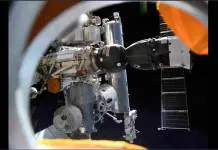
American researchers have discovered ancient tools and bone which are nearly 14,550 years old. Disclosed by archeologists in the journal Science Advances, the researchers confirm that people started occupying America more than 1,000 years ago, a fact that will contribute in dissecting the region’s history.
It is believed that people, 1,000 years ago, by using sharp stone knives hacked at the tusk of a slain mastodon and clicked meat from the long bone. However, they left few tools and the stripped carcass, which was recovered recently. It is interesting to note that despite several people who invaded Florida, these ancient remains were still intact.
Said to be discovered in the Florida panhandle, named Page-Ladson, a diver discovered the tools and remains. Researchers estimate that the land belongs to the family owned by people nearly 1,000 years ago.
Commenting on the discovery, Mike Waters, Chief Investigator, said that he always felt that both Dunbar and Webb had been misrepresented on this issue. However, he was given permission to unravel the mystery and he quickly jumped at it without any second thought.
Water revealed that his team used more precise dating techniques than the ones used in former researches. He further stated that the whole project became successful as a result of difficult excavation in the Aucilla River, which is a slow moving water bypass surrounded by beautiful cypress trees.
Archeologists went below the river, dug up and marked sediments from the extreme bottom of the river. They managed to dissect through each collected waste and dirt before concluding that humans were indeed present several thousand years ago.
Previously, James Dunbar and David Webb dissected the knife-scarred mastodon tusk, which was nearly 14,400 years old. However, the anthropological community during the 1980s declined to accept the evidence seized, due to the doubt it had.
It is widely said that Clovis people, who were skilled hunters, migrated from Asia via Canada and reached part of Florida nearly 13,000 years ago.











